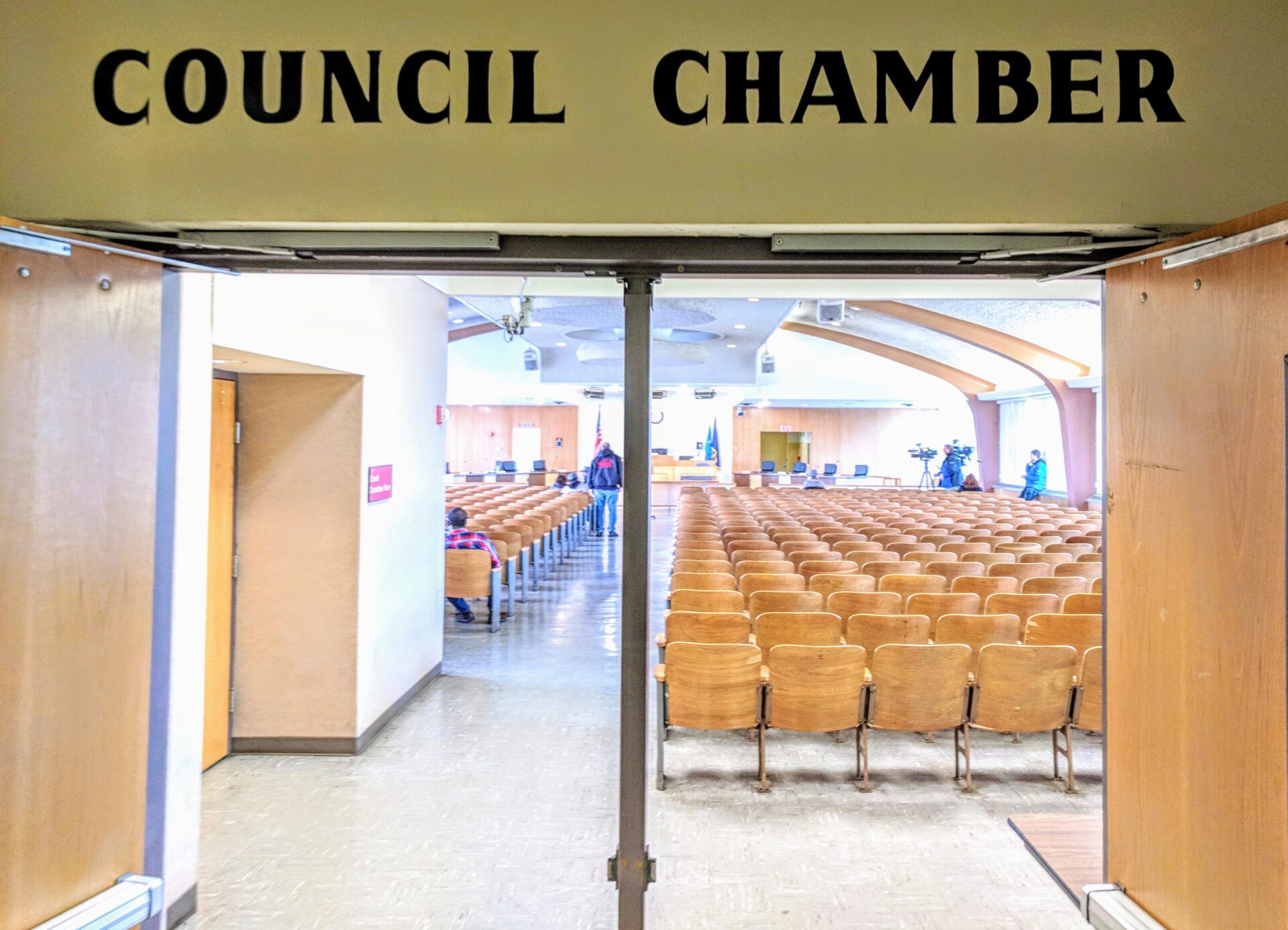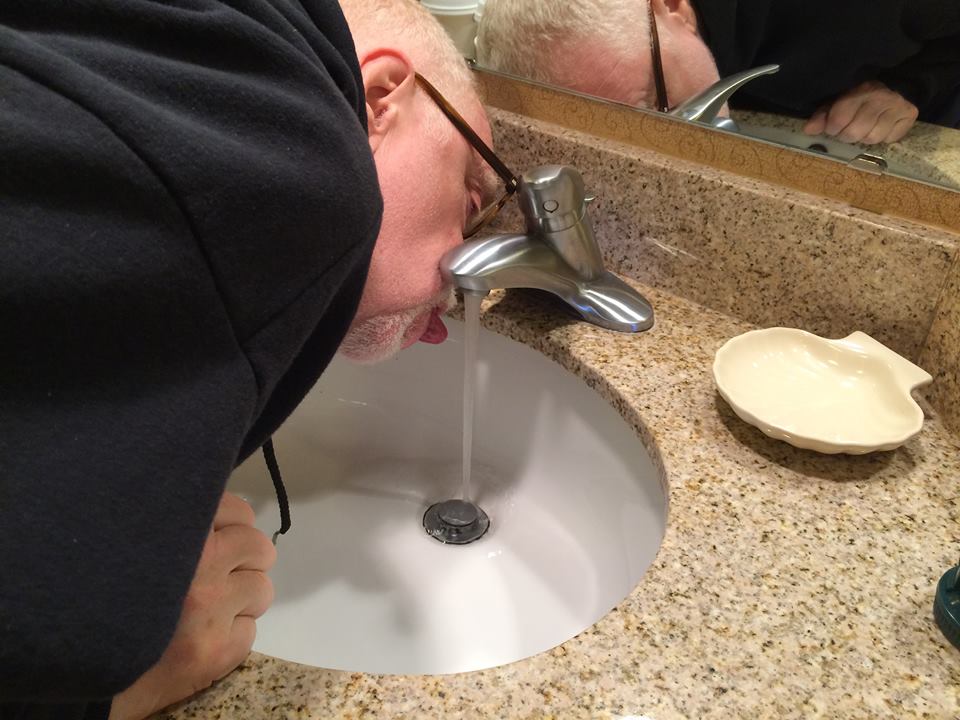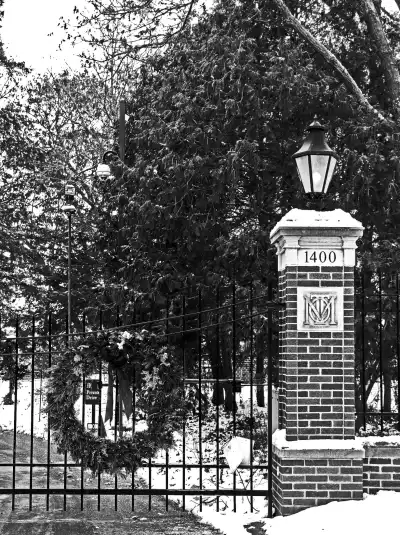By Jeffery L Carey Jr.
Does the City of Flint have a director of economic development or not? And is the position, financed as part of a $2.9 million Kellogg Foundation grant, being filled by a person or a company? Is there a conflict of interest built into the way the grant is being administered? And does this all matter, as Rodrick Miller and the team assembled to work with him attempt to bring more jobs to Flint? Or is it just a minor misunderstanding about a word?
Confusion on all these questions emerged recently over Miller’s official position and concern about a possible conflict of interest if he were to be a city employee receiving a salary while also a CEO of a company awarded the contract for the economic development of Flint.
The concern arose after a press release issued by the City of Flint April 9, where Mayor Karen Weaver stated, “Rodrick Miller, president and CEO of Ascendant Global, has been hired to lead the team in the position of Economic Development Director.”
Miller was also announced as both the CEO of Ascendant Global Consulting and the director of economic development for the City of Flint at the recent “Going Global” event at the Ferris Wheel.
After an East Village Magazine story appeared, Fourth Ward City Councilperson, Kate Fields, emailed, “To my knowledge Mr. Miller has not been appointed as Director of Economic Development. He is a consultant who has been hired using Kellogg grant to head up a Flint Economic Development initiative. There is a difference.”
Flint City Attorney Angela Wheeler affirmed in an email back to Fields, “Mr. Miller is the consultant leading Economic Development efforts for the City.”

Rodrick Miller at the recent “Going Global” event at the Ferris Wheel (photo by Darlene Carey).
Asked about this confusion over his title, in a recent interview Miller clarified he and his firm, Ascendant Global, are in effect the city’s economic director. He said his firm has contracted with the City of Flint.
“I am not an employee of the City of Flint,” he said, suggesting the job title confusion was a miscommunication between the administration and the council.
Asked if the mixup over his job title highlighted the City of Flint’s lack of an ethics and accountability board and an ombudsman called for by the revised City Charter approved by voters 2-1 last August, Miller said, “This is out of my purview.”
[The charter was to take effect Jan. 1, but has remained unimplemented, languishing in city council committees. The ombudsman’s position, with $250,000 already designated in the overall city budget for salary and operations, is to be appointed by an ethics and accountability board to handle complaints and manage internal conflict resolution and ensure there are no conflicts of interest.
But so far, the council and city administration have not appointed an ethics and accountability board. According to the charter, each of the nine council members is to nominate one person from his or her ward, and the mayor is to make two appointments, making a total of 11 members–Ed.]
From an economic standpoint, Miller said that City of Flint should make things more “turnkey,” providing a complete product or service package ready for immediate use.
“Bringing new jobs to Flint is the focus of my team,” Miller said in a phone interview. “It’s not an amorphic thing,” he said as he summarized challenges he has been tasked with and the goals of his team for Flint. “We want to bring new jobs to the City of Flint and to drive investment.”
About Miller and his team
Miller stepped down as president and CEO of the Detroit Economic Growth Corporation (DEGC) in March, 2017, after a three-year tenure. He came to Detroit from New Orleans, where he was the founding president and CEO of the New Orleans Business Alliance, according to Crain’s Business the official economic development organization for the city. Before that he’d been economic development officer in Baton Rouge LA and Phoenix AZ.
He started Ascendant Global after his departure from the DEGC, in September, 2017. Headquartered in Detroit, its website lists 15 employees and additional offices in Atlanta; Washington, D.C.; Medellin, Colombia; and New Orleans. Flint is not its only client.
Miller says his Flint team has been hosting round-table sessions to bring together business, civic and community leaders to talk about the economic direction of the city. He says they discuss “what are the biggest pain points or challenges and what are the biggest opportunities.”
In addition to Miller, the local economic development team includes Outreach Development Liaison Aonie Gilcreast, a longtime advisor to the mayor who had described himself as a volunteer through most of Weaver’s administration until the Kellogg grant came through.
Also on the team are Deputy Director Linnette Phillips, a Flint native focusing on small business and workforce development; and Deputy Director Janice Karcher, a longtime Flint and Genesee County Chamber of Commerce staff member, responsible for business attraction and retention.
Seeking a collective dialogue
Miller has brought in advisors from outside the city as well, economic counterparts of his from around the state with the objective of creating a “collective dialogue” and to help move the city forward.
A typical day, he said, involves “meeting with all these folks, having a meeting with the Mayor and some of her senior staff to deal with hot button issues, and then meeting with my team.”
According to city records, Miller’s pay is $12,500/month for a total of $150,000/year. All members of the team are on four-year contracts corresponding to the term of the Kellogg grant.
Flint’s size may be an advantage
A former five-year term member of the U.S. Council on Foreign Relations who has had experience building economic growth in much bigger cities, Miller said Flint may end up being easier to bring immediate and noticeable change to because of its size.
In a city the size of Flint, he said, “You can have very significant impact with a few transactions,” adding he finds that prospect “very exciting.”
Flint faces many of the same issues as other cities, including environmental justice and years of economic decline, he said, and on these issues, he can take advantage of “lessons learned.”
He said his team is looking for, “not just high end jobs and not just low end jobs but jobs across the spectrum.” He aims to bring in a diverse array of companies, but focus on Flint’s talent as well — “ensuring our residents are well trained for those jobs.”
Seeking “green” and “blue” technology
Miller said he hopes to “shift the narrative” about Flint away from the water crisis and pivot and focus on the many things Flint has to offer. One aspect that Miller is hoping to focus on is Flint as a place for “green” and “blue” technology – a strategy, he admits, is in its infancy in the city. “Blue technology” refers to methods for addressing water issues, including depleting aquifers, managing the water supply and recycling waste water from energy production.
Miller stated approaches to new companies are in the pipeline, with several possibilities the team are “aggressively” pursuing. None are as yet a “done deal,” he said.
In addition to the Kellogg funds, Miller said the city is looking at other grants and investors.
He admits he thought when he accepted the consulting position, the situation he would encounter in Flint would be much more difficult.
“There are divisions and challenges of course, but what I found was whether it was a private sector business leader, a local person on the street or political leadership, everyone was very pro-Flint and had the same objective around bringing Flint back,” he says.
Resources are Flint’s biggest challenge – the need to bring in more capital and more philanthropy to the city and community. Miller says he hopes to use the immigration overhaul proposal known as HR 4760, Securing America’s Future Act of 2018 which has been introduced in Congress, to Flint’s advantage, “We will be very aggressive,” he says.
Designing pitches with “surgical” strategy
Attempting to avoid a “scattershot approach” of seeking foundation funding, Miller and his team instead are being more specific when asking private companies for investments, demonstrating how their investment will leverage other investments in a more “surgical” way.
According to his entry on consultingconnect.org, Miller has a Master of Public Policy from Harvard University’s Kennedy School of Government, a Bachelor of Science in international business from St. Augustine’s College, and a graduate diploma in finance from the Monterrey Institute of Technology (ITESM) in Monterrey, Mexico, acquired when he was a Fulbright Fellow.
On his Twitter page, he describes himself as “World Citizen, Patriotic American, Blessed Father, Forgiven & Saved by Grace.” On his LinkedIn page he notes he speaks fluent Spanish and proficient Portuguese.
Ultimately, Miller said he hopes the city, which has dropped from a population of 200,000 to less than half that in the past 50 years, will achieve population stability and then population growth with the opportunity for the community to participate in a meaningful way.
EVM Staff Writer Jeffery L. Carey, Jr. can be reached at jlcareyjr@hotmail.com. EVM Editor Jan Worth-Nelson contributed to this report. She can be reached at janworth1118@gmail.com.







You must be logged in to post a comment.